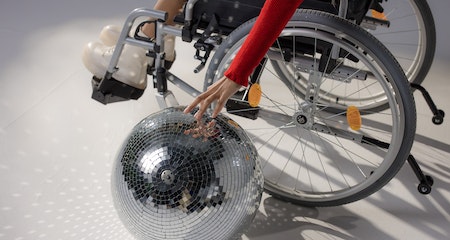The Americans with Disabilities Act (ADA) requires institutions and businesses to provide interpreters for the disabled. This includes hospitals, law offices, schools, and other settings.
It can be difficult to find an interpreter for someone who is hard of hearing or deaf. There are many resources that can help you find an interpreter.
Translating interpreting services (TIS) national
Healthcare services are incomplete without the assistance of an interpreter for disabled people. They bridge language barriers and enable patients to understand their needs. They also can help to ensure that patients receive the care they need in their own language.
In addition to providing medical interpreting, interpreters can also provide social and cultural support. In health settings, this can include ensuring access to information about healthcare procedures and equipment for those who do not speak English.
TIS National provides both pre-booked phone and on-site interpreting services. These are available 24 hours a day, every day of the year for the cost of a local call to any person or organisation in Australia who requires an interpreter.
If you need to book an interpreter for an NDIS participant, TIS National recommends using the online service, TIS Online. Log in with your NDIS number, client code and to make a booking.
Interpreters of American Sign Language (ASL).
American Sign Language (ASL) interpreters work for people who are deaf and hard of hearing. They are specialized in the field of communication and provide services to people in various settings including healthcare, business, educational, religious, and government agencies.
ASL is a visual-gestural language that developed independently of English and differs from the language in terms of its phonology, morphology, and grammar. It is an effective means of communication for a variety of purposes and can be used as a first language by many deaf individuals.
The American Speech-Language-Hearing Association has affirmed that ASL is a language. It is distinct from English and other signed languages.
Bilingual interpreters
Students with melbourne disability services need bilingual interpreters to meet their needs. They work with families that are primarily linguistically or culturally diverse to help them understand and take part in educational decisions, assessments, meetings, and communication between educators, school personnel, and other school personnel.
They also support the school team by assisting with assessment materials in native languages and reviewing documents to ensure that they are culturally relevant. These professionals have a wide range of educational and employment experiences and are trained in special education compliance.
To meet the increasing linguistic diversity in the United States, professional organizations representing SLPs and professional interpreters need to establish parameters for serving children and adults who are bilingual with communication disorders. These guidelines must be integrated into best practices guidelines, and supported by federal, state, and local education administrations. They should also be developed in collaboration between SLP/interpreter groups.
Sign language interpreters are available for the hearing impaired
Sign language interpreters can be a valuable resource to the hearing impaired. They can enhance accessibility in a variety of settings, including schools, hospitals, public services and courts.
They also support education and awareness. This helps ensure that the hearing-impaired community can participate in a broad range of activities, including concerts and speeches.
Deaf interpreters who use American Sign Language (ASL) have received specialized training in the use gestures, mime and props to ensure effective communication.
They often work with hearing sign language interpreters to maximize their benefits for the hearing impaired. These interpreters are expert at both ASL and English, and possess a deep understanding of their clients’ cultural backgrounds.

